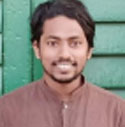Understanding Syncretic Islam of Kerala from a historical perspective
 By
Mubashir Vattaparamban, New Age Islam
By
Mubashir Vattaparamban, New Age Islam
4
February 2022
Even
Trivial Concession To Religious Communalism Will Wreak Innumerable Havoc Across
Kerala
• Islam in Kerala has played an
indelible role in shaping its economic and social history.
• In Kerala, the history of Islam
is intrinsically blended with religious harmony and syncretic culture.
• Many mosques of Kerala were built
with the financial support of Hindu rulers.
• Counter radicalization is
alarmingly gripping Muslims in the State.
….
South
Indian Islam is perennially different in contents and practices from its North
Indian counterpart. The preaching of Islam by Sufi missionaries and the
eclectic nature of social exchanges from the advent of Islam renders South
Indian Islam to stand apart from North Indian experiences of Islam which is
rather politically mobilized. While North India suffered violent and rash
departure from history when Partition forced demographic and religious changes,
the South was fortunate to remain shielded from this disaster.
Islam
in Kerala has played an indelible role in shaping its economic and social
history. Islam in Kerala could be geographically located into two; hybrid
Muslim Arab settlements in the Malabar region and labour migrant Muslims into
Deep South to cash on volatile fortunes after Portuguese forces inaugurated
imperial colonialism. But, as noticed by Francis Robinson, both segments of
Muslims in the State share identical history and practices with minor regional
adaptations.
According
to Caroline Osella, Islam in Kerala fits into ‘Glocalized Islam’, where sacred
universalistic religious practices are integrated into social practices of
society and thus new religion serves as continuity without inviting a backlash
from other communities. This cultural integration enables delicate
intercommunity amity to be revived. Proselytization is done with minimal
alterations to cultural and social identities and hence facilitating smooth
transaction of society.
In
North India, Islam more or less served as subservient to the political
aspirations of rulers. Political extrapolation of religion often caused
ruptures in the society, causing deep antagonism among the people. The fact
that religion was a shot in the arm for the medieval rulers without much
personal loyalty is glossed over in modern India. When judgments are passed
about the Past in the present, it amounts to missing the trees for the forest.
But in
Kerala, Islam was less associated with political assertion. In the long Kerala
Muslim history, only one major Muslim kingdom could rule. And the sole Muslim
dynasty itself was the successors of Muslim converts. Throughout history, the
Arakkal dynasty followed matriarchy, something antithetical to popular Islam.
Islam thrived under Hindu rulers and continued to be a consummate vibrant
factor in Kerala.
In
Kerala, the history of Islam is intrinsically blended with religious harmony
and syncretic culture. Hindu population eagerly warmed to the egalitarian
precepts of religion. Trade relations nourished the harmonious growth of Islam.
“The growth of Islam in Kerala owed much courtesy to the tolerant populace of
the time,” says Mujeeb Jaihoon, author of historical fiction about the Mappila
community.
As a
traveller and historian, Mujeeb Jaihoon has documented vividly poignant
instances of religious tolerance which helped prosper Islam in Kerala. His book
‘The Cool Breeze From Hind’ is an unputdownable dossier of mutual interactions.
While Islam was dreaded as an imperial power in North India, in Kerala the local
Hindu rulers persuaded their subjects to convert to Islam, says the author.
Zamorins of Kozhikode prevailed upon coast-dwelling people to convert to Islam
to supply human resources for the naval fleet fighting Portuguese savages.
Many
mosques of Kerala were built with the financial support of Hindu rulers. When
the missionaries of Malik Dinar band set afoot in Kerala, Chera rulers
benevolently donated land and tax-free estate for mosques. Out of the first ten
Masjids in Kerala, at least six were constructed with the largesse of the Hindu
rulers. “That is why, when North Indian politics is mired ankle-deep in the
slugfest of Muslim desecration of temples, Kerala enjoys immunity from temple
politics”, proudly boasts Mujeeb Jaihoon. Nevertheless, he is anxious about the
quick infection of the communal epidemic in the State too.
Besides,
the author acknowledges the fact Muslim heroes are revered by the Hindus. The
eponymous martyred Kunchali Marakkarand, Kerala Robin Hood Kayamkulam Kochunni
is held in high esteem by all. Still, before Hindu devotees proceed to
Sabarimala, they venerate Vavaru Swamy, the Muslim confidant of the presiding
deity Ayyappan. Darghas have teemed with people across the religious divides
seeking temporal largesse. The author highlights the multicultural nature of
Nerchas (Uroos) to drive home the importance of cultural assimilation.
But
the famed religious collaboration is increasingly under peril both from Hindu
and Muslim communal forces. The idyllic serenity of religious harmony in the
State could be shredded into severe wounds and yawning mistrust lest the State
fails to repel the forces of disintegration reminds the author with a pinch of
foreboding.
Counter
radicalization is alarmingly gripping Muslims in the State. Cultural assimilations
are denigrated as unlawful accretions in the religion and demand urgent
dismissal of such elements and return to sombre monolithic Islam, preached by
Salafism. The time is the exceedingly demanding revitalization of the past
legacies of cultural exchange. As once Hindus protected Muslim interests,
nowadays Muslims are morally bound to sustain delicate religious pluralism.
Even trivial concessions to religious communalism will wreak innumerable havoc
across the State.
...
Mubashir
Vattaparamban is a student of Journalism at Indian Institute of Mass
Communication, JNU, Delhi
------------
URL:
New Age Islam, Islam Online, Islamic Website, African Muslim News, Arab World News, South Asia News, Indian Muslim News, World Muslim News, Women in Islam, Islamic Feminism, Arab Women, Women In Arab, Islamophobia in America, Muslim Women in West, Islam Women and Feminism
